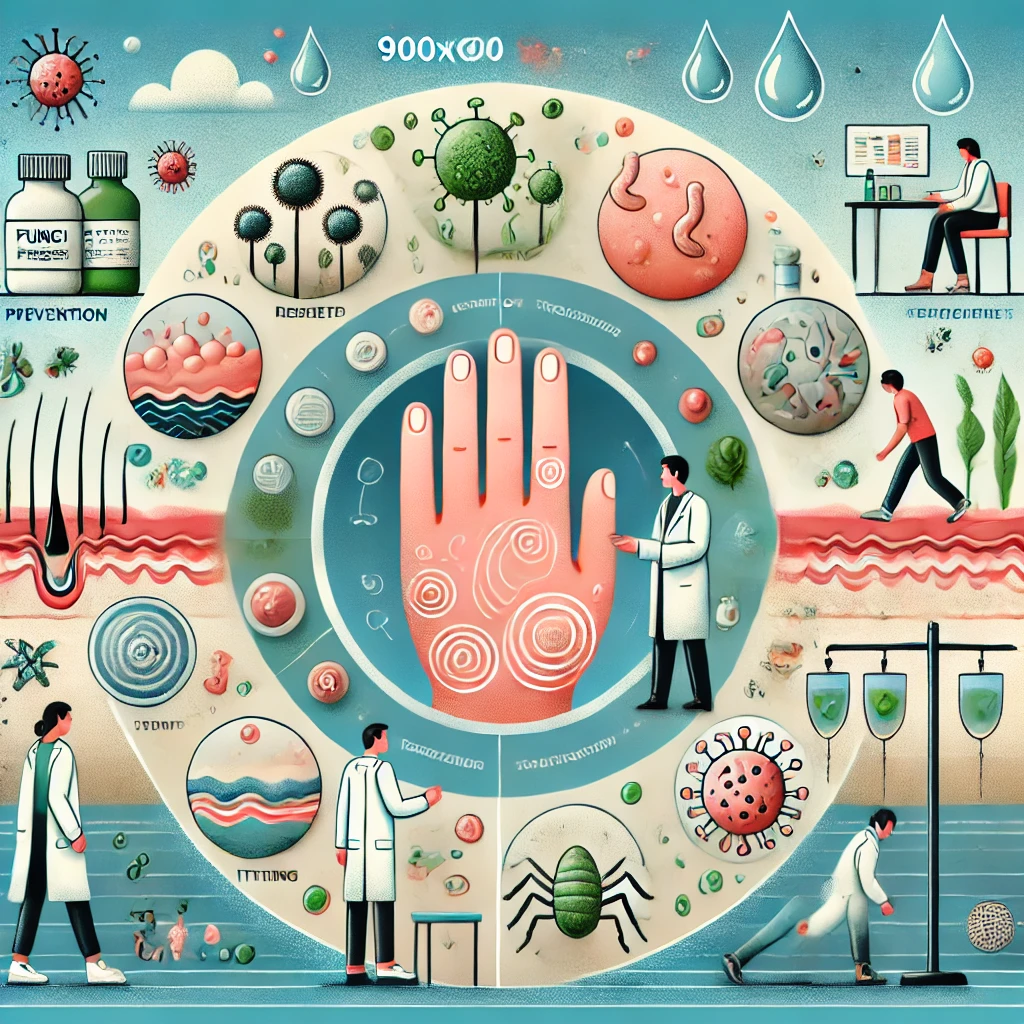Understanding Fungal Diseases
Fungi are varied creatures that may bother humans. Fungal illnesses can affect any bodily area and range from minor to severe.
Common Types of Fungal Diseases
Some common fungal diseases: Ringworm: This widespread fungal illness creates a red, ring-shaped rash. It affects the skin, scalp, and nails. Athlete’s foot: This fungal infection itches, burns, and scales between the toes. Candida: Candida yeast can cause vaginal yeast infections, diaper rash, and mouth thrush. Cryptococcosis: This fungus illness can harm the lungs, brain, and other organs. Most people with weaker immune systems have it. This fungal illness is induced by breathing in spores from bird or bat droppings. It can cause pneumonia-like symptoms.
Risk Factors for Fungal Infections
Factors that induce fungal infections include: Fungi: Fungi live in soil, water, and plants. Fungi increase the risk of fungal infections. Weakened immune system: HIV/AIDS and cancer patients are more likely to have fungal infections. Diabetes and renal illness might raise the risk of fungal infections. Steroids and medicines might impair the immune system and exacerbate fungal infections.
Common Symptoms of Fungal Infections
The kind of fungal infection determines its symptoms. Some common symptoms: Red, ring-shaped rash: Ringworm symptoms include this. Fungal infections often cause itching. Symptoms of an athlete’s foot include burning. Skin scaling is a typical sign of an athlete’s foot and ringworm. Wounds: Cryptococcosis can cause open wounds. A dangerous fungal illness like histoplasmosis might cause chest discomfort.
Treatment Options
Visit a doctor for fungal infection diagnosis and treatment. The kind of fungal infection determines treatment. Some typical treatments: Antifungals can be administered orally or applied to the skin. A fungal infection that has spread to bones or other organs may require surgery. Fluids and antibiotics may be needed to treat a significant fungal infection.
Prevention Guidelines
Tips to avoid fungal infections: Keep the skin clean and dry. Keeping the skin clean and dry prevents fungus. Avoid dirt, soil, and bat and bird droppings. These may contain infectious fungi. Walking in public requires shoes. It protects your feet from fungus. Trim and clean your nails. Trimming and cleaning nails prevents nail fungus. Diabetes care. Diabetes weakens the immune system and increases fungal infections. Take your doctor-prescribed medications. Treating underlying medical issues that raise fungal infection risk will assist. Follow these strategies to avoid fungal infections and stay healthy.
